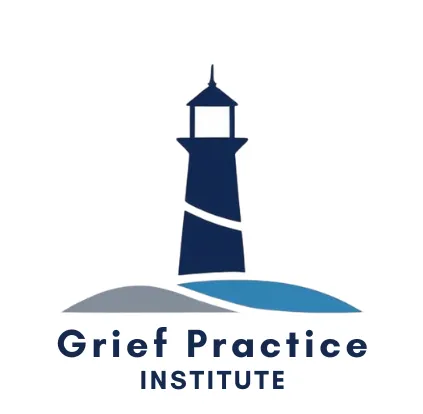Empower Your Practice with Contemporary Grief Literacy
Welcome to Grief Practice Institute:
Building Confidence in Grief-Informed Care
Professional training programs that equip mental health therapists, counsellors and healthcare professionals with contemporary grief literacy and practical tools for compassionate, effective bereavement support.
Is your practice Grief-Informed?
Currently, do you?
Rely on out-dated
grief understandings such as linear, time-bound, or stage models of grief?
You had limited, or no,
grief-specific education as part of your degree, or further CPD training?
You feel uncertain, worried, or under-equipped to effectively respond to client's complex grief and bereavement concerns?
How would it feel instead, if?
Your practice was informed by contemporary and evidence-based grief research and models?
You could confidently recognise and respond, with care and competence, to grief in all it's forms?
You had the tools and skills you needed to effectively assess and intervene with complex client presentations (including Prolonged Grief)?
Join Us
We invite you to explore our programs, deepen your grief literacy, and become part of a growing community committed to raising the standard of bereavement care.
Together, we can ensure that no grieving person feels
unseen, misunderstood, or unsupported
And that every practitioner feels confident and equipped to walk beside them

Grief Literacy Webinars
Free Introductory Grief Literacy webinars.
Live sessions and recordings to help you take the first steps toward grief-informed and effective practice.

Frequently Asked Questions
What is grief literacy and why is it important for therapists, counsellors, and healthcare professionals?
Grief literacy refers to understanding the diverse experiences of grief and loss and having the skills to recognise and respond effectively to them in clinical practice. It is essential for competent ethical care because grief is a universal human experience woven through many mental health and healthcare presentations.
Many practitioners feel unprepared to address grief due to a lack of training in their degrees, leading to consequences like misdiagnosis (e.g., labelling grief as anxiety or depression), invalidation of client experiences, and missed opportunities for targeted support. Improving grief literacy allows practitioners to provide more validating and effective care by identifying and addressing the underlying grief contributing to a client's difficulties

Why is further specific training in grief theory and practice needed?
Research has highlighted significant gaps in formal education regarding grief and loss for mental health professionals. University degrees often provide minimal coverage of the topic, sometimes limited to brief introductions to outdated models. This lack of foundational training means that many practitioners enter the field without a solid understanding of contemporary grief theory, assessment methods, or practical intervention strategies. This forces practitioners to rely on fragmented learning from webinars, personal experience, or generalist skills, often leaving them feeling under-confident and without a clear framework for effectively supporting clients experiencing diverse forms of grief. Grief Practice Institute programs have been specifically developed to bridge these knowledge gaps.

How can Grief Practice Institute courses help practitioners build confidence and competence in working with grief?
Our courses recognise that building confidence in grief-informed practice stems from having a strong theoretical framework, knowing how to apply it practically, and developing comfort in discussing death, dying, and complex loss experiences. Our programs offer contemporary learning and training that covers diverse grief presentations, evidence-based assessment tools, and practical intervention strategies, alongside self-assessment and reflections on one's own experiences with loss and death to enhance self-awareness and capacity to hold space for clients' grief. And weekly live Q& A sessions provide opportunities to explore complex cases and integrate theoretical knowledge with real-world application.

Why is it important to be able to identify and respond to different forms of grief?
Grief encompasses a wide range of losses and transitions throughout life. This can include the loss of identity, opportunities, relationships (such as estrangement), functionality, or even future expectations. Practitioners need to be attuned to how grief can show up "disguised" as other presenting issues like anxiety, anger, depression, burnout, or a feeling of being "stuck." Recognising these "invisible griefs" involves adopting a curious and compassionate mindset, using language to explore the client's experiences of change and loss, and moving beyond solely focusing on diagnostic labels to understand the unique personal conceptualisation of what is happening in their life.

How do outdated models like the stages of grief impact practice?
Models like the 5 stages of grief are widely known but are often unhelpful and misleading when applied to general grief experiences. Originally based on work with the dying, these models have been extrapolated to bereavement and other losses in ways that oversimplify the complex nature of grief.
They promote ongoing myths like grief being linear, timebound, or having a clear endpoint (closure), neglecting the physical, cognitive, spiritual, and practical dimensions of loss, as well as the concept of ongoing adjustment rather than resolution. Reliance on these outdated models can invalidate clients' unique experiences and lead to practitioners feeling ill-equipped when grief presents in ways that don't fit these frameworks.

